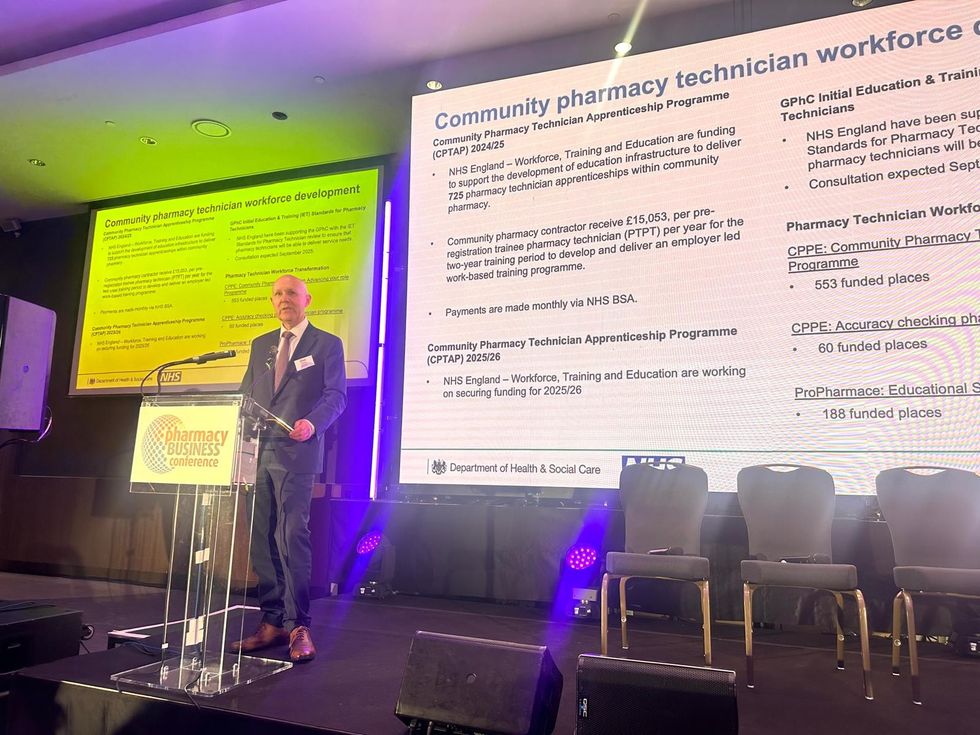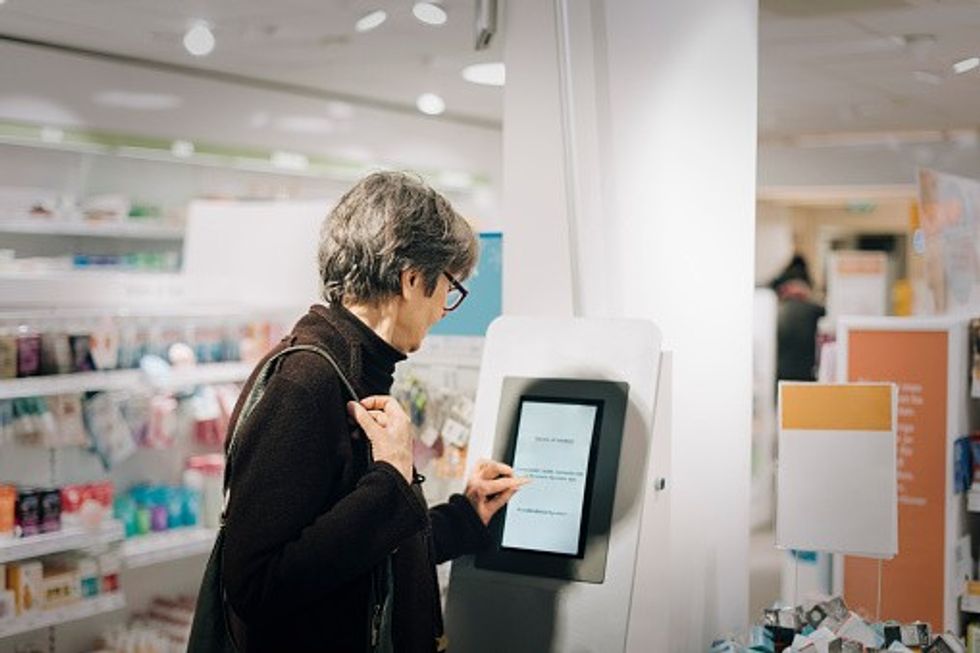Thorrun Govind and Chris Peace from Brabners shared tips on buying your first pharmacy or building your portfolio at the recent Pharmacy Show
The Pharmacy Show is a pivotal event for the key players in the pharmacy industry. It’s also an opportunity to gain fresh insights as you embark on your next healthcare venture. TV Pharmacist and Healthcare lawyer (Brabners) Thorrun Govind took to the stage for a packed session at The Pharmacy Show 2024 to share some legal hints and tips. She was joined by her Brabners legal colleague Chris Peace. We share some of the insights from their talk on buying your first pharmacy or building your portfolio here:
Market Overview
Govind explained that the UK pharmacy sales market in 2023 had an unprecedented initial six months owing to the decision taken by parent company Hallo Healthcare Group to divest their portfolio of over 1,054 Lloyds Pharmacies. The divestment created a fever-pitch level of demand from potential buyers both within the market and outside. Since then, other multiples such as Boots have opted to divest some branches, although on a significantly smaller scale than Lloyds.
Govind noted the uncertainty surrounding the upcoming Autumn Budget. Whilst Peace noted the expectation that the government will make significant changes to Capital Gains Tax (CGT) rules. Should (as many anticipate) the government bring in a transitional period for the implementation of any tax changes, we may also expect a heightened ‘fire sale’ flurry of activity in the upcoming months.

Buying a Pharmacy
Govind sympathised that buying a pharmacy can be daunting, especially for first-time buyers:
- Finding a Business:
- Independently: You may hear of pharmacies for sale in your local area or through your network. Working or locuming at a pharmacy where the owner is looking to sell can be advantageous. If the business has not been widely advertised to the market, then you may face less competition and through your existing association with the seller possibly secure a better price. However, Govind explained that on the downside, if you are an inexperienced buyer, you may end up paying over the odds if you do not have a good understanding of valuation methodologies.
- Through a Broker: Register as an interested buyer with pharmacy brokers. They can help you find a pharmacy for sale and often, the seller pays the broker fees.
- Financing Your Purchase:
- Determine how much you can realistically borrow and compare interest rates. Specialist financial institutions understand the pharmacy sector and are prepared to lend against pharmacy goodwill valuations.
- Govind highlighted that having an ‘offer in principle’ from a bank can build confidence with the seller and speed up the acquisition process.
- Professional Advisors:
- Brabners lawyers Chris Peace and David Seddon, have supported over 1,500 transactions between them and specialise in this field. This was evident by the experienced response to the numerous questions fielded by the audience.
- Govind explained that an accountant or tax advisor with experience in the retail pharmacy sector is also vital. Specialist pharmacy solicitors and accountants can be invaluable, not just in guiding you through the transaction process but also in supporting you through the early stages of the business when you are most likely to need sound advice.
- Due Diligence:
- Peace highlighted the importance of assessing the health of the business by asking the right questions. He explained that an experienced pharmacy lawyer can help you with this and ensure matters run more efficiently. Enquiries should cover all aspects of the target business, including local doctors’ surgeries, nursing homes, and pending NHS contract applications. Govind advised that the last three years’ annual accounts and FP34s should also be obtained, to accurately quantify historic prescription sales, as well as current management accounts, which will reveal any recent business deterioration.
Despite the challenging financial outlook, there was plenty of interest from young, entrepreneurial pharmacists in the audience eager to own their pharmacies. We also hope to see many of these new owners entering the next Pharmacy Business Awards 2025.









 Health Secretary Wes Streeting addresses Pharmacy Conference via video
Health Secretary Wes Streeting addresses Pharmacy Conference via video  David Webb, chief pharmaceutical officer of NHS England
David Webb, chief pharmaceutical officer of NHS England Shailesh Solanki, executive editor of Pharmacy Business
Shailesh Solanki, executive editor of Pharmacy Business L-R: Yasmin Karsan, Pritee Panchmatia and Fin McCaul
L-R: Yasmin Karsan, Pritee Panchmatia and Fin McCaul  L-R: Baba Akomolafe, Rachna Chhatralia, Patricia Tigenoah-Ojo and Raj Matharu
L-R: Baba Akomolafe, Rachna Chhatralia, Patricia Tigenoah-Ojo and Raj Matharu L- R: Nicola Stockmann, Robert Townsend, Atul Patel and Amerjit Singh
L- R: Nicola Stockmann, Robert Townsend, Atul Patel and Amerjit Singh Wole Ososami, lead pharmacist at Westbury Chemist
Wole Ososami, lead pharmacist at Westbury Chemist








 A woman using kiosk at pharmacy store gettyimages
A woman using kiosk at pharmacy store gettyimages  Pharmacist examining commissioning machine in pharmacy gettyimages
Pharmacist examining commissioning machine in pharmacy gettyimages